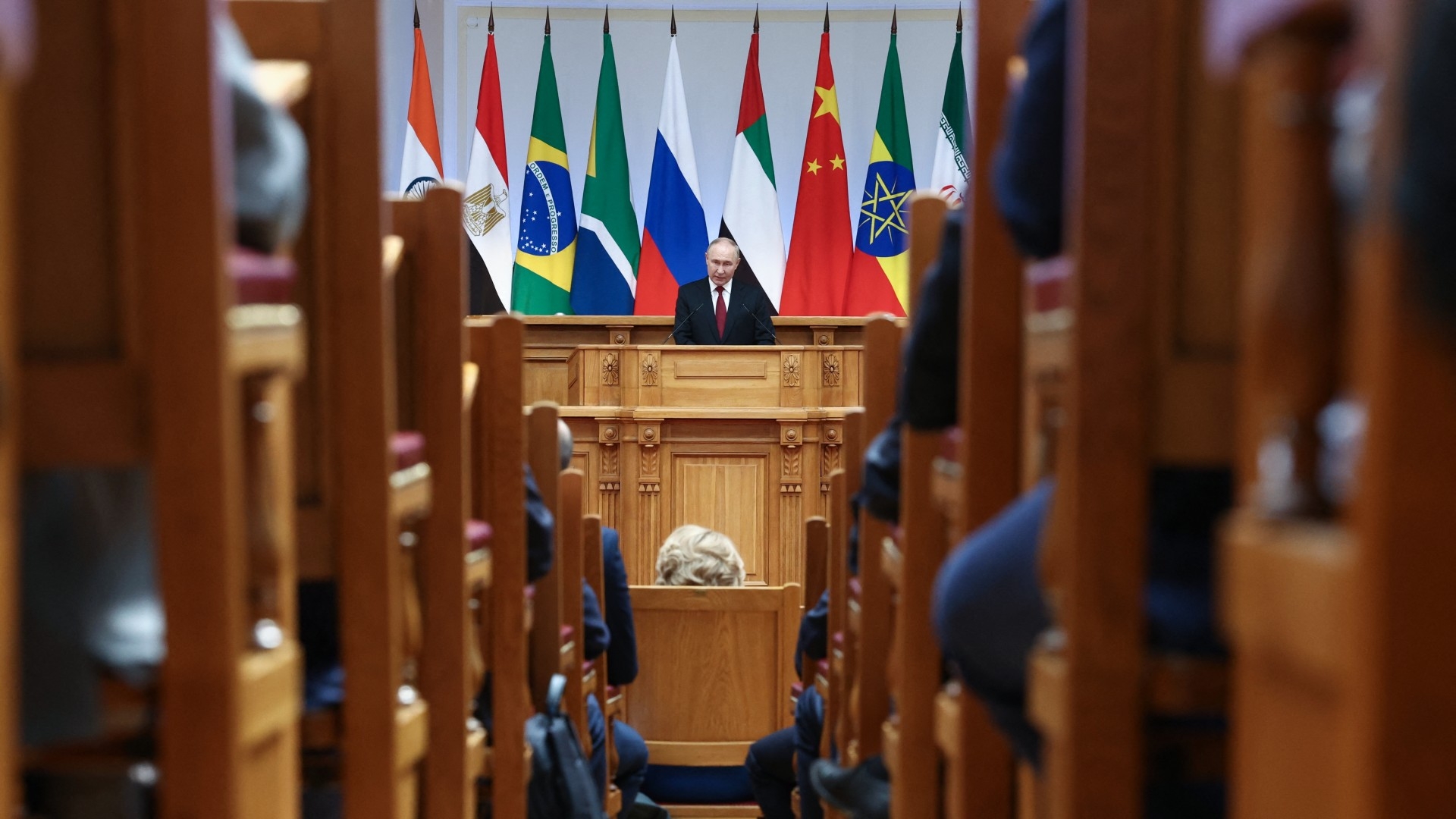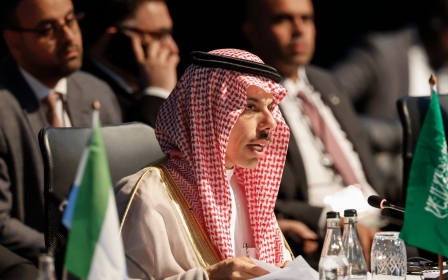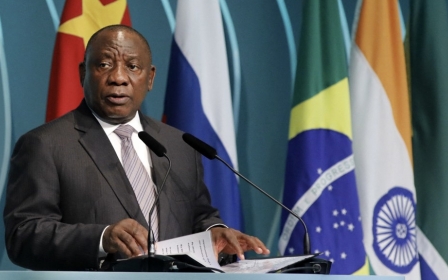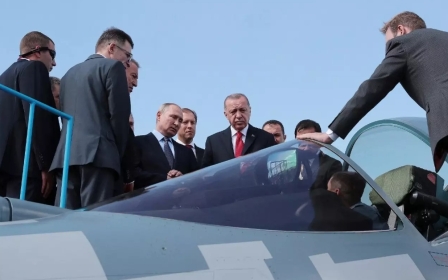Russian leaks on Turkey’s Brics membership bid unsettle Ankara

When Turkey filed an official application to become a member of the Brics economic group, the Turkish public first heard about it from the Russians.
“Turkey has submitted an application for full membership and it will be considered,” Yuri Ushakov, an aide to Vladimir Putin, told reporters earlier this month.
Ankara’s interest in Brics - an acronym for its founding members Brazil, Russia, India, China and South Africa - is not new.
For more than a year before applying, Turkish President Recep Tayyip Erdogan repeatedly expressed openness to joining the group. In June, during a visit to China, Foreign Minister Hakan Fidan revealed that Ankara might try its luck this year.
Often seen as an alternative to the G7, which is led primarily by western nations, the growing popularity of Brics represents a significant shift in global power dynamics. If Turkey's bid is successful, it would become the first Nato ally to join the bloc.
New MEE newsletter: Jerusalem Dispatch
Sign up to get the latest insights and analysis on Israel-Palestine, alongside Turkey Unpacked and other MEE newsletters
Yet, Ankara insiders find Russia’s statements and media leaks about Turkey’s application puzzling.
Russian statements since June have only deepened the confusion.
'We are also inclined to believe that Russia plays with this issue to score some points in the West'
- official from Brics country
If Russia would like Turkey to become a member, as it has intimated to Turkish officials, why did Russian Foreign Minister Sergey Lavrov immediately respond to Fidan’s comments by saying Brics is not interested in expanding?
“By the overwhelming majority, the 10 nations decided to ‘take a pause’ with new members to ‘take in’ the new members who have doubled the association,” Lavrov said.
Though Brics does not have a permanent leader, Russia recently assumed the chairmanship and plans to host a summit in Kazan from 22 to 24 October.
Again, news that Erdogan would join the summit was announced by the Kremlin.
Turkish officials were eager to find out if the summit would discuss the potential enlargement of the bloc.
Their suspense was finally killed by Lavrov again, who told Russian media last week that the Kazan summit would cover the topic of expansion, but not in the way Ankara had hoped.
He explained that Brics would create a category called “partner states” separate from the full membership.
Lavrov then went on to imply that Brics' rules and values could prevent members from being part of other associations or blocs, such as Nato, contradicting earlier statements by a senior Turkish official.
'A negotiating tactic'
Lavrov’s mixed signals on Ankara’s Nato membership, creating obstacles along the way while revealing everything to the press, have rattled Turkey and increased suspicions that Russia has an agenda.
“This is a negotiating tactic to move Turkey on some issues,” said an official from a Brics country.
“Many support Turkey’s membership because it can disrupt Nato, and so do the Russians.”
However, the issue is more complicated than what Moscow wants.
China’s foreign ministry spokesperson did not even mention Turkey by name when commenting on its desire for Brics membership, only stating that Beijing was interested in working with countries keen to join.
The Indian foreign ministry, on the other hand, told journalists last week that New Delhi would go by consensus.
Sidhant Sibal, an Indian foreign affairs journalist, explained that bilateral aspects, such as Ankara’s lukewarm relationship with New Delhi, play a role in the process. However, consensus and the evolving procedure are ultimately what matter.
As the official from the Brics country put it: “India is the problem.”
Moreover, the application issue could put Turkey in a difficult position, especially if Brics keeps Turkey waiting for full membership for many years.
Ankara has been waiting for EU membership since the 1960s, and if Brics were to give Erdogan's government the same treatment, it would be poor optics and would only add to the frustrations of the Turkish public.
“While Brics is a significant international grouping, it falls short of being a cohesive, unified force like the EU,” said Ozgur Unluhisarcikli, an analyst at the German Marshall Fund think tank.
“As such, it cannot serve as an alternative to the EU for Turkiye, at least for now.”
Unluhisarcikli said Moscow may be using these tactics to deepen the rift between Turkey and the West, particularly Nato.
A second official from a Brics country echoed this sentiment, speculating that Russia's attitude towards Turkey’s membership might be shaped by an undeclared agenda.
“We are also inclined to believe that Russia plays with this issue to score some points in the West,” the official said.
Middle East Eye delivers independent and unrivalled coverage and analysis of the Middle East, North Africa and beyond. To learn more about republishing this content and the associated fees, please fill out this form. More about MEE can be found here.





